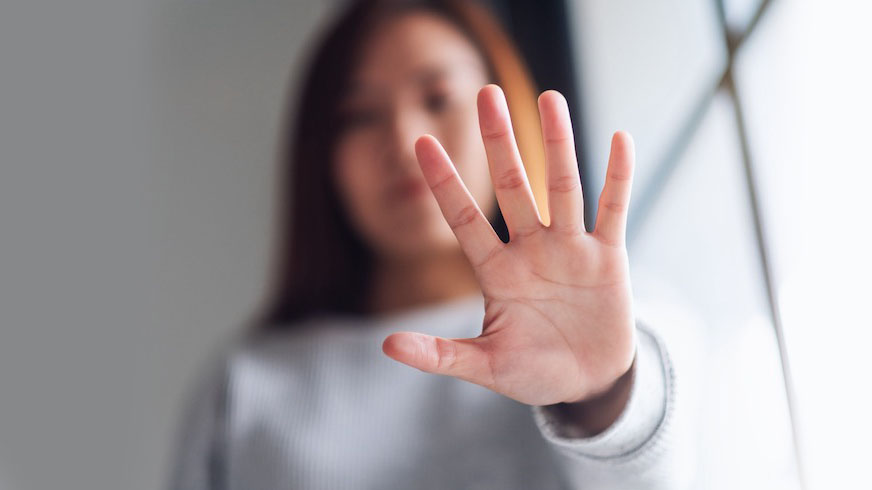 The HHS Office on Women’s Health has identified innovative ways to address human trafficking prevention among women and girls in the United States through the HHS Innovation Challenge to Prevent Human Trafficking Among Women and Girls.
The HHS Office on Women’s Health has identified innovative ways to address human trafficking prevention among women and girls in the United States through the HHS Innovation Challenge to Prevent Human Trafficking Among Women and Girls.
This competition acknowledges existing programs that have demonstrated effectiveness in 1) preventing human trafficking and/or improving health outcomes related to human trafficking among women and girls, 2) sustaining program practices, and 3) expanding and/or replicating the program's reach. The competition has two phases with a total prize pool of up to $1.8 million. Phase 1 winners have been selected. Phase 2 opens for submission on August 3, 2025.
Background/Issue
The HHS Office on Women's Health (OWH) provides expert advice and consultation to the Secretary on scientific, legal, ethical, and policy issues. The Office serves as a point of coordination throughout HHS regarding issues affecting the health of women and girls. OWH establishes short—and long-term goals within the Department for research, disease prevention and health promotion, service delivery, and education for public health and health care professionals regarding women's and girls' health.
Human trafficking is a human rights violation that involves the exploitation of people against their will for forced labor or commercial sex purposes. It is a highly profitable criminal industry, affecting an estimated 26.7 million individuals globally. The trauma experienced in human trafficking has a profound and detrimental impact on health outcomes, including short and long-term physical and behavioral health. Health impacts of human trafficking include toxic stress that wears down immunity, contributing to the risk of liver disease, chronic renal disease, and other autoimmune and neurological disorders.
According to the White House’s National Action Plan to Combat Human Trafficking, women and girls are disproportionately impacted by human trafficking, which in turn undermines their safety, health, and well-being. Data from the National Human Trafficking Hotline (“Hotline”) shows women and girls comprised approximately 84% of individuals in trafficking situations and 50% of individuals in labor trafficking situations reported to the Hotline in 2019. Women and girls who are sexually abused are more likely to suffer physical abuse, sexual re-victimization, and/or intimate partner violence later in life. Because 1 in 3 women experience intimate partner and/or domestic violence at some point in their lives, they are at high risk of human trafficking and other forms of abuse.
Subject and Scope of Prize Competition
The goal of this competition is to identify and award existing programs that demonstrate effectiveness in preventing human trafficking and/or improving health outcomes related to human trafficking among women and girls, sustainable program practices, and the program's ability to be expanded and/or replicated.
The competition has two phases.
- Phase 1 awarded existing, innovative programs that have demonstrated outcomes in successfully preventing human trafficking and/or improving health outcomes related to human trafficking among women and girls.
- Phase 2 will award Phase 1 winners that have successfully expanded and/or replicated to increase the impact of their program in preventing human trafficking and/or improving health outcomes related to human trafficking on women and girls.
This prize competition emphasizes prevention for women and girls through innovation. Innovative approaches may include, but are not limited to, primary, secondary, and/or tertiary prevention methods, as well as prevention methods that focus on recent migration or relocation, missing and murdered Indigenous women, substance misuse, unstable housing, abuse, childhood trauma, peer/dating relationships, school engagement, faith-based support, self-esteem, emotional regulation, positive coping skills, and mental health conditions.
It also supports the goals of the HHS Task Force to Prevent Human Trafficking.
Prizes
The competition has two phases with a total prize pool of up to $1.8 million. The application window for Phase 2 begins August 3, 2025
- Phase 1 FY24 (Identification of existing innovative and impactful programs): 18 winners were selected to each receive a prize of up to $50,000.
- Phase 2 FY26 (Awarding sustainable programs that have successfully expanded and/or replicated): The participants selected to receive a prize in Phase 1 may compete for consideration to receive a prize in Phase 2. Up to 8 submissions may be selected to each receive a prize of up to $100,000
For more information, including judging criteria and submission requirements, visit Challenge.gov or email TraffickingChallenge@hhs.gov

